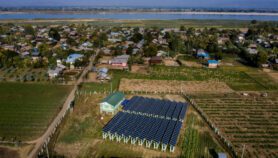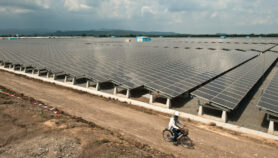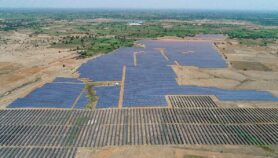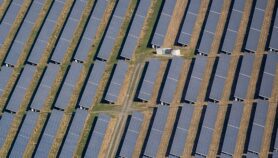By: T.V. Padma
Send to a friend
The details you provide on this page will not be used to send unsolicited email, and will not be sold to a 3rd party. See privacy policy.
Asian and European leaders estimate they will invest US$6.3 trillion in the energy sectors of developing Asian countries by 2030, following discussions this week.
The amount represents more than one third of the total global investment in the energy sector estimated for 1990-2020.
In a declaration issued at the end of the 6th Asia Europe Meeting (ASEM) in Finland on Monday (September 11), the leaders of 25 European and 13 Asian nations agreed to share low-carbon and energy-efficient technologies with developing ASEM countries.
The agreement was part of a larger pledge to intensify joint efforts to combat climate change and exchange information and early warnings on natural disasters.
Asked whether they would accept mandatory caps on greenhouse gas emissions, the presidents of South Korea and Indonesia avoided the question, stressing instead their willingness to adopt alternative energy sources, according to Reuters and Associated Press reports.
ASEM was set up ten years ago in Bangkok. This is the first time it has issued a declaration on climate change.
"The declaration sends a strong signal to the world that ASEM intends to tackle the threat that climate change poses to sustainable development," said Finland’s prime minister Matti Vanhanen at the end of the meeting.
Finland is the current holder of the rotating European Union presidency.
The joint statement recognises that energy security and climate change are closely linked, and that countries can improve their energy efficiency by diversifying energy sources and investing in renewables.
It also notes that developing countries have "legitimate priority needs" — to achieve sustainable economic development and eradicate poverty.
Energy consumption in most emerging Asian economies is rising rapidly, but they are not bound by the UN Kyoto Protocol to reduce their emissions of greenhouse gases that cause global warming.
India was formally inducted into ASEM at the meeting, along with Bulgaria, Mongolia, Pakistan, Romania and the secretariat of the Association of South East Asian Nations.
Link to ASEM 6 Declaration on Climate Change ![]() [29.98 KB]
[29.98 KB]













